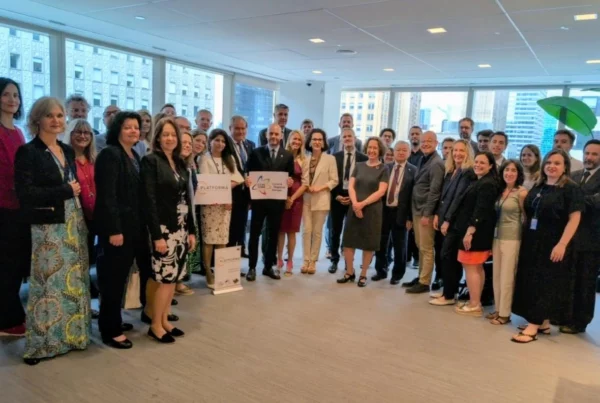UN report: climate change’s impact worsening, multi-level action crucial to adopt
The Intergovernmental Panel on Climate Change (IPCC), the top UN body working on the issue, recently published the second part of its sixth assessment report on the impact of the changing climate on ecosystems and human populations across the world.
The report warns that the extent and magnitude of those impacts outpass previous estimates. The authors starkly observe that climate change is human-induced and “a threat to human well-being and planetary health.” At the same time, the IPCC notes that collaboration and planning across levels of government and including all elements of society are crucial to adapting to climate change.
It is now likely that global warming will reach or exceed 1.5°C in the near-term. The IPCC warns that if further global action on adaptation and mitigation is delayed, the brief window of opportunity to secure a liveable future will be missed. There is an urgent need for stronger action.
Multi-level action needed for climate adaptation and resilience
The IPCC stresses that we need multi-sectoral, inclusive and long-term planning to adapt to and attenuate climate change’s impact. Only by involving all levels of government and all segments of society can we hope to take effective action.
In this respect, CEMR is proud to be contributing to the Covenant of Mayors for Climate and Energy an initiative which brings together cities to help them reach climate neutrality by 2050. The Covenant enables cities to develop and implement holistic local adaptation plans involving all local players. Participants can also share and learn best practices on how to prepare for climatic events such as heatwaves and floods.
The IPCC report also emphasises the notion of climate-resilient development, meaning a model of sustainable development that includes climate mitigation and adaptation. Achieving climate-resilient development will require international cooperation and governments at all levels working with communities, civil society, the private sector and traditionally marginalised groups.
Together, these different forms of cooperation tackle structural inequalities and mobilise sufficient financial resources. CEMR is committed to achieving these goals through its participation to different international coalitions and projects, notably PLATFORMA, the Green City Accord and UCLG.
The IPCC’s latest report makes for grim reading. The evidence is clear: time is running out. Stronger action, coordinated across levels of government, is needed if we are to overcome this greatest environmental challenge.

Project Lead – Climate, Energy & Urban Development





